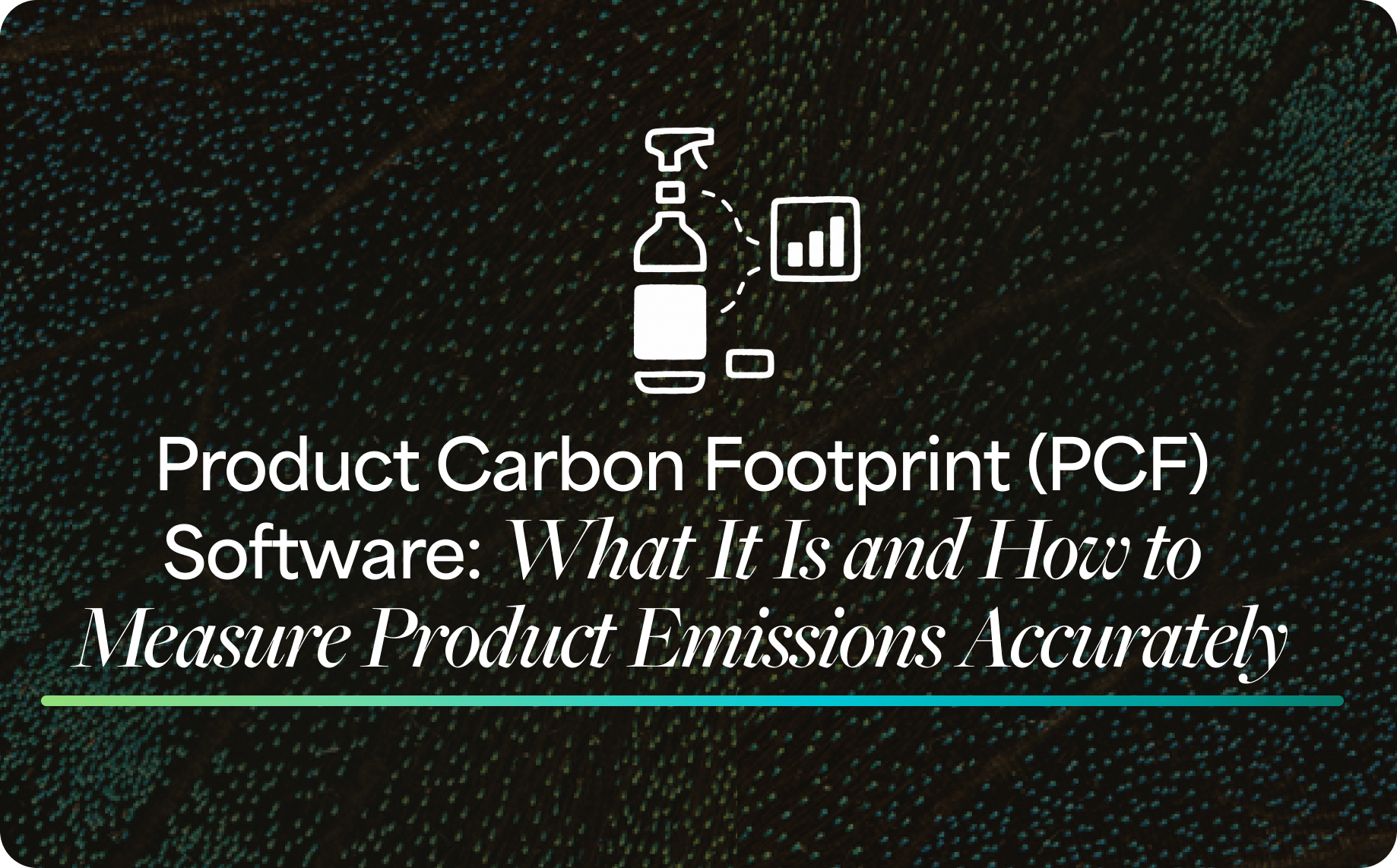Taking a manual workflow, and then automating it, is one of the most effective ways for sustainability teams to achieve their goals more rapidly.
By carefully reviewing and improving processes, companies can mitigate bottlenecks and unnecessary steps, increase efficiency, and in the end, save a lot of time that can be reinvested elsewhere.
Especially amidst the ongoing trend of companies being expected to strengthen their commitments to decarbonization, the adoption of streamlined workflows stands out as a particularly valuable approach, allowing sustainability teams to handle tasks with elevated precision and productivity.
In terms of specific ways that companies can go about optimizing their procedures, one of the most pivotal is likely to be the integration of a robust SaaS (Software-as-a-Service) platform into an organization’s operational framework.
By consolidating data, digitizing processes, and enabling sophisticated analysis, SaaS platforms empower businesses to not just track their environmental footprint, but to actively reduce it as well.
In our view, the integration of SaaS solutions revolutionizes the role of sustainability teams, enabling them to transition from solely oversight to active strategy implementation—a shift that can help foster a culture of environmental stewardship across all of a company’s operational domains.
Below, we’ll delve into the impact that SaaS platforms can have on a company’s sustainability initiatives, while also pinpointing specific areas where organizations are likely to see the most significant results.
Having a single source of truth
SaaS platforms offer sustainability teams a major advantage by centralizing emissions-related data into one, cohesive reference point.
This consolidation simplifies the monitoring of carbon footprints, facilitates analysis, and ensures ready access to essential information that’s needed for decarbonization initiatives, reporting and audits.
Also, having a single source of truth not only enhances transparency and accountability, but also empowers organizations to implement tailored strategies for reducing emissions and advancing toward their sustainability goals.
Doing more with less
Another key point to highlight is how SaaS platforms offer a viable path for sustainability teams and their organizations to achieve greater results with fewer resources.
Specifically, we’re referring to a platform's capacity to minimize manual tasks, while also optimizing efficiency in areas ranging from automating data collection to analysis and reporting.
Traditionally, sustainability teams or consultants would have to manually search for emission factors and then align them with a company’s procured goods and services. However, digital solutions are playing an increasingly vital role in simplifying this process.
As an example, Unravel Carbon’s engine uses artificial intelligence (AI) to extract information from accounting data, and swiftly match it with the relevant emission factors stored in our proprietary database.
This boost in productivity can free up time and capital, enabling sustainability teams to focus more of their efforts on putting projects into action, crafting comprehensive strategies, and driving progress with increased agility and effectiveness.
Improved privacy and security
Next, I'd like to share some thoughts on the significant advantages in terms of privacy and security that come with using a SaaS platform to manage sustainability efforts, particularly when compared to an exclusive reliance on tools such as Excel.
SaaS platforms often come equipped with robust security measures, including encryption, access controls, adherence to stringent compliance standards, and regular updates, effectively safeguarding sensitive data from potential breaches.
This heightened security not only shields against unauthorized access, but also creates a greater level of trust amongst a company’s stakeholders.
Preparing for what’s ahead
From Singapore to Australia and countries around the world, we’re likely to continue seeing a global trend toward increased regulations surrounding corporate sustainability reporting.
Reporting can be tricky, but SaaS platforms can help companies by streamlining data collection and reporting initiatives in anticipation of stricter regulations.
SaaS platforms may also have capabilities to determine data gaps and evaluate data quality, which helps sustainability teams quickly determine where they stand in relation to evolving compliance standards.
Also, it’s worth noting that subject to the availability of data, a platform’s onboarding process may be completed relatively quickly. In some instances, the timeframe can shift from months to just a matter of weeks.
Conclusion
By leveraging digital solutions, companies can accelerate their progress toward decarbonization, up efficiency, and contribute to reshaping the landscape of sustainable business practices.
In particular, via robust analytics, streamlined data management, and real-time insights, SaaS platforms can empower companies to not just monitor sustainability goals, but to drive transformative change within their organizations as well.
Finally, adopting this proactive approach enables businesses to cultivate a reputation for transparency and accountability amongst their stakeholders, while also positioning companies to adjust more seamlessly to new requirements that are on the horizon.
Interested in learning more about how SaaS solutions can support your company’s sustainability efforts? Get in touch with us here.



.jpg)
.jpg)
